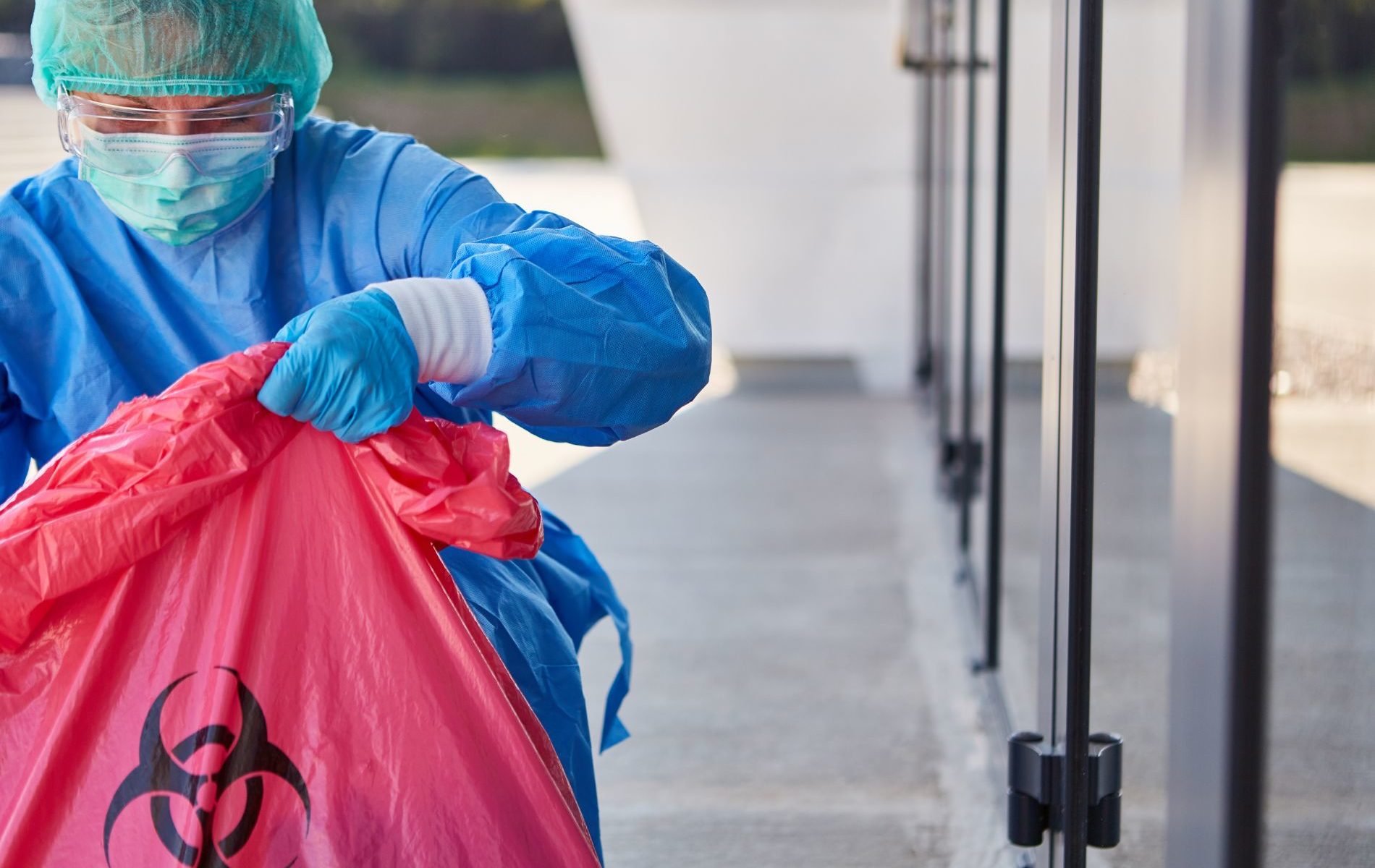Reclaim Waste Can Be Fun For Anyone
Reclaim Waste Can Be Fun For Anyone
Blog Article
The Basic Principles Of Reclaim Waste
Table of Contents9 Easy Facts About Reclaim Waste ExplainedThe 5-Second Trick For Reclaim WasteGetting My Reclaim Waste To WorkFacts About Reclaim Waste RevealedThe Main Principles Of Reclaim Waste
Domestic sewage waste refers to the waste and items from a residential septic storage tank. The correct administration and disposal of residential sewage waste need fluid waste to be transferred to a sewage treatment plant where the correct approaches and tools are applied to cleanse and dispose of waste.
Business waste typically consists of potential risks, such as combustible products or a mixture of liquid and solid waste items, and calls for an advanced and thorough disposal procedure. The disposal of commercial waste usually entails the purification of waste before transportation to make sure secure and correct disposal. Hazardous waste is created from byproducts and overflow of industrial processes and manufacturing.
This sort of waste can not make use of the same sewage administration transportation or procedures as septic or business fluids. The industrial waste administration process needs the assessment and screening of fluid waste before it undertakes the disposal procedure (liquid waste disposal). Overflow waste is the liquid waste that comes from runoff and excess stormwater in highly booming areas or cities
Overflow waste can cause contamination and flooding if not taken care of effectively. Making sure proper waste monitoring can stop catastrophes and reduce ecological damage.
The Best Strategy To Use For Reclaim Waste
Contact PROS Solutions today to find out about our waste administration and disposal services and the correct methods to look after the fluid waste you produce.
(https://www.gaiaonline.com/profiles/reclaimwaste1/46907679/)Do you recognize what happens to your water when you pull the plug, flush the toilet or drain the washing machine? No? Well, it deserves knowing. This supposed 'wastewater' is not only an important resource however, after treatment, will certainly be launched to our land, rivers or the ocean. Used water from commodes, showers, baths, cooking area sinks, laundries and commercial processes is called wastewater.

water utilized to cool down machinery or clean plant and tools). Stormwater, a form of wastewater, is overflow that moves from agricultural and city areas such as roofings, parks, yards, roads, paths and seamless gutters into stormwater drains pipes, after rain. Stormwater moves unattended directly to neighborhood creeks or rivers, ultimately reaching the sea.
7 Simple Techniques For Reclaim Waste
In Queensland, most wastewater is treated at sewage treatment plants. Wastewater is moved from residential or industrial websites via a system of sewers and pump stations, called sewerage reticulation, to a sewage treatment plant. Regional federal governments develop, preserve and operate most sewage treatment plants. Operators are licensed under the Environmental Management Act 1994 to discharge treated wastewater at an acceptable environmental standard right into rivers.
The Division of Natural Resources encourages city governments concerning managing, operating and maintaining sewage systems and therapy plants. In unsewered areas, neighborhood governments may call for homeowners to set up specific or family sewage therapy systems to deal with domestic wastewater from toilets, cooking areas, washrooms and washings. The Department of Natural Resources authorizes the usage of home systems when they are proven to be reliable.
A lot of stormwater receives no therapy. In some new subdivisions, therapy of some stormwater to eliminate clutter, sand and crushed rock has started using gross toxin traps. Wastewater treatment takes place in four phases: Removes strong matter. Bigger solids, such as plastics and other things incorrectly released to sewers, are gotten rid of when wastewater is travelled through screens.
Wastewater then streams right into large containers where solids settle and are eliminated as sludge. Oil and scum are skimmed from the surface area. Uses small living organisms called micro-organisms to break down and eliminate continuing to be dissolved wastes and fine bits. Micro-organisms and wastes are incorporated in the sludge. Removes nitrogen and phosphorus nutrients that might create algal blooms in our waterways and intimidate marine life.
Some Of Reclaim Waste
Nutrient elimination is not readily available at all sewer therapy plants since it needs expensive specialised equipment. Clear fluid effluent generated after therapy may still consist of disease-causing micro-organisms - liquid waste disposal melbourne.

This typically implies wastewater needs to be dealt with or pollutants eliminated prior to it can be released to waterways. The majority of wastewater moves into the sewage system. Under the Act, regional governments carry out authorizations and licences for eco pertinent activities (Periods) entailing wastewater releases that might have a check my blog local influence. The division provides approvals and licences to ERAs entailing wastewater launches that might have a local or statewide influence.
The Reclaim Waste PDFs
Otherwise, examples are taken for research laboratory analysis. Commonly numerous tests are required to develop the degrees of each of the different toxins such as oils, hefty metals and pesticides in water. Surveillance supplies accurate information about water high quality and can verify that licence problems are being satisfied. The info acquired via tracking supplies the basis for making water quality choices.
Report this page